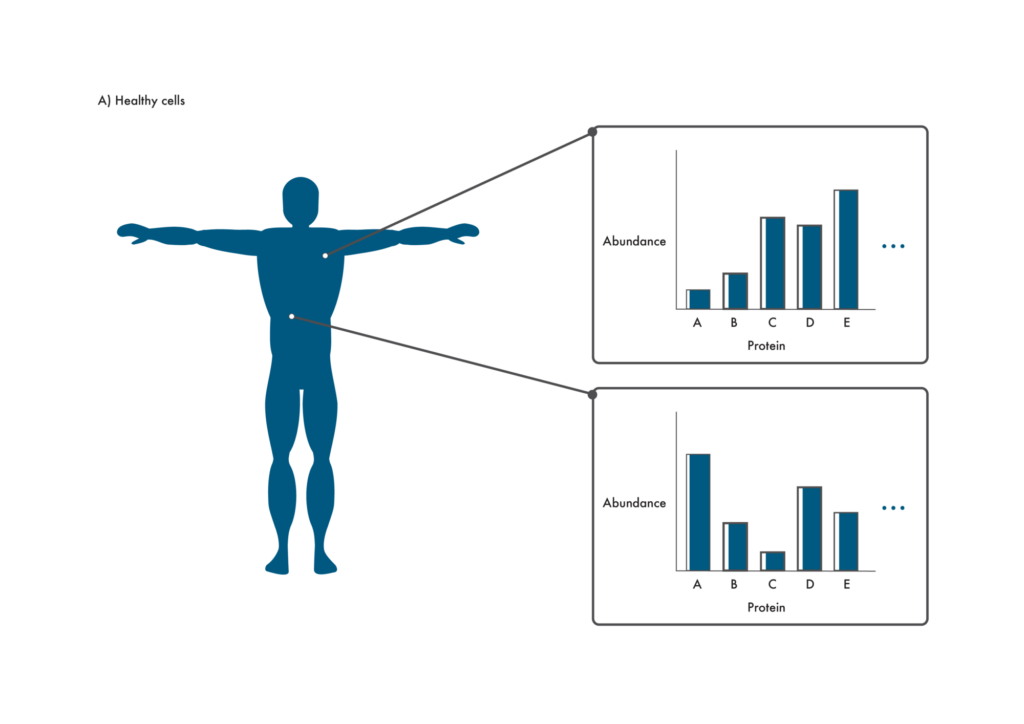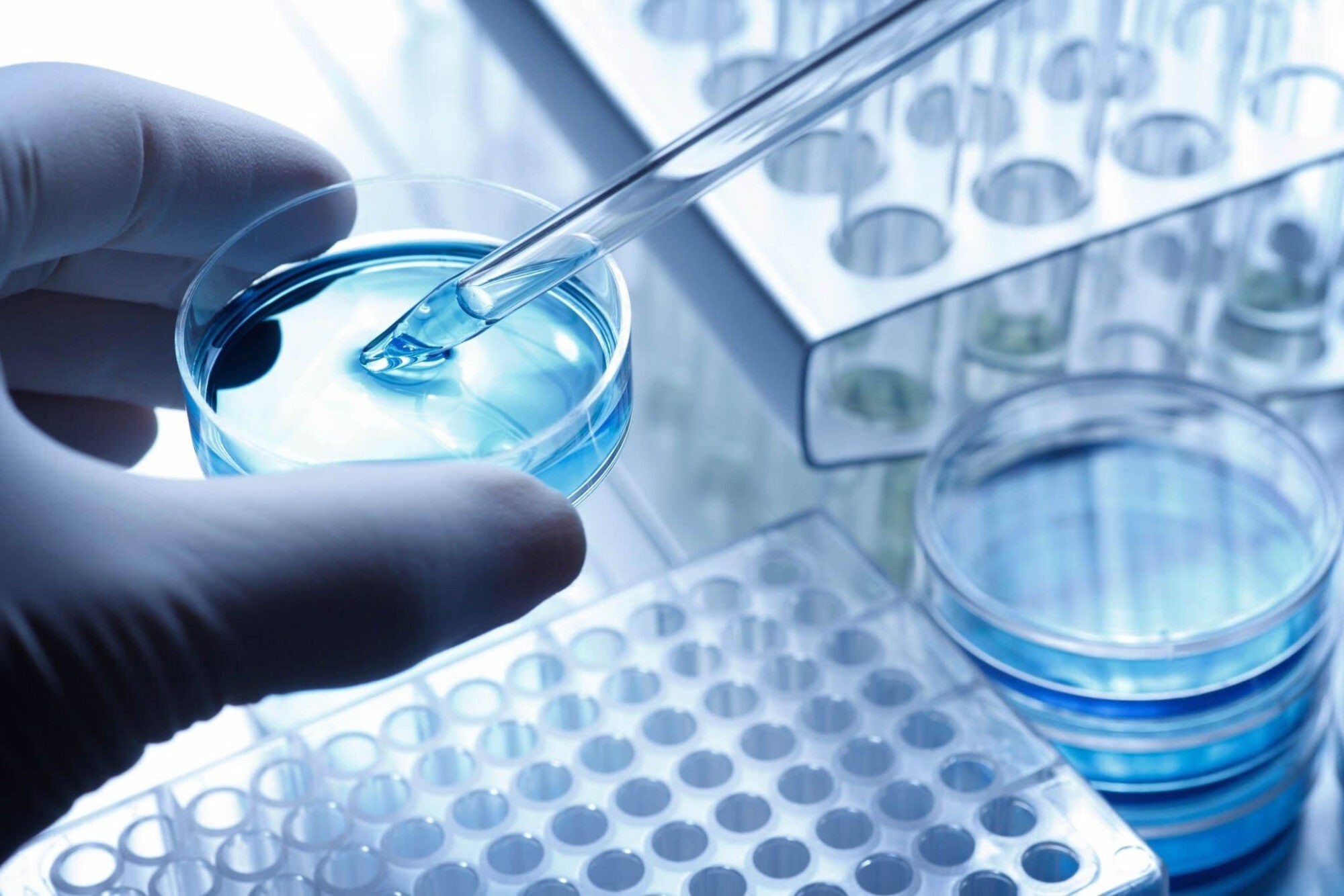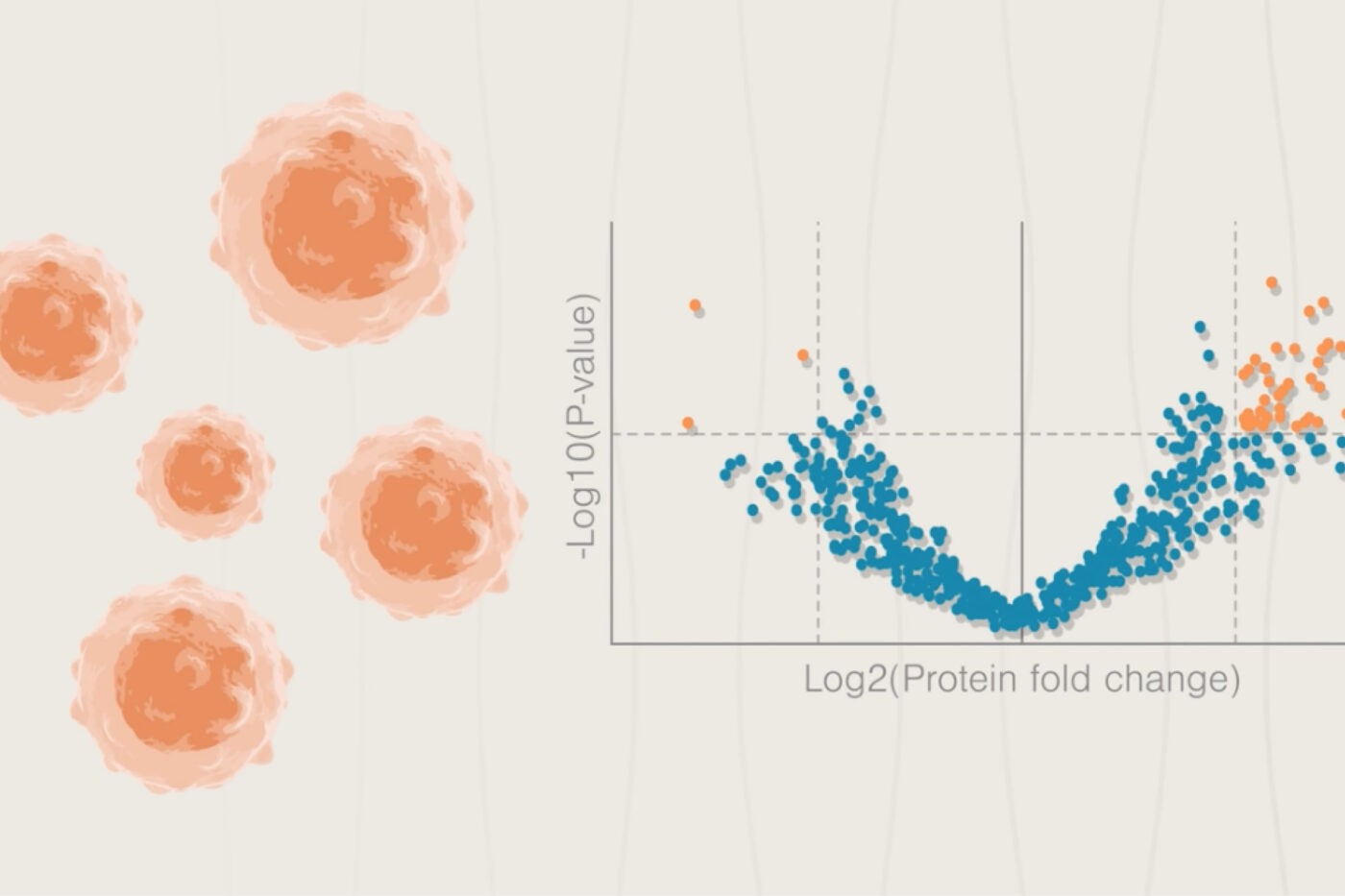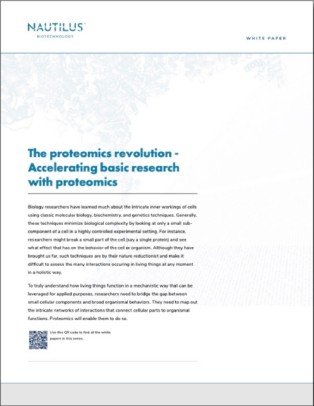In this series, we discuss 3 types of research that can be accelerated by advanced proteomics technologies. This is far from an inclusive list and focuses on non-clinical research with a nod to clinical applications that can result from these research areas. As we get accessible, high-throughput proteomics technologies into the hands of researchers around the world, they’ll develop myriad applications that will reveal much more about the inner-workings of living things than we ever thought possible.
Proteomics and developmental biology – how do cells and tissues get their identities?
Developmental biology is the study of how organisms grow from single cells. Research in this field has inspired advances in evolution, stem cell biology, cloning, and much more, but there are many open questions. In particular, scientists don’t have a full understanding of what defines the different types of cells that can be found in an organism and they are beginning to see that many cellular identities are fluid. Some cells can take on new identities and even replace others after tissue damage (Spatz et al 2021). So what really makes a skin cell a skin cell or an immune cell an immune cell? It’s the proteins, the molecular machines that give these cells their functions, that matter.
Learn how Professor Kathryn Lilley and others are leveraging proteomics to learn more about protein function
Scientists can track cell lineages through development, know many of the key proteins that drive cells to become one type or another, and have analyzed many cell types through Herculean efforts like the Human Protein Atlas. Nevertheless, the older techniques used in many of these projects don’t always provide a full view of the many proteins and protein isoforms produced in the human body. Recent efforts using advanced proteomics technologies dig deeper and find new proteins associated with particular tissues (e.g. skin). Using novel, high-throughput proteomics platforms like those being developed at Nautilus, researchers can probe the millions of proteins and protein isoforms produced in the human body and get a much fuller picture of cellular identity across all tissues.
With such comprehensive data, it may become easier to understand how to do things like coax one type of cell to become another. This would be useful not only to prove that certain proteins are sufficient to define cellular identities but also because a variety of diseases manifest when people lack particular cells. For example, the liver detoxifies many compounds that enter our bodies but can itself be damaged by these compounds. This leads to impaired liver function and can ultimately result in death. Researchers could perhaps develop new means of treating liver disease by getting other cells to replace diseased or dead liver cells. Similarly, diabetes can arise when patients lack the pancreatic beta cells that produce insulin. Researchers are making efforts to treat diabetes by getting more pancreas cells to transform into insulin-producing beta cells (Zhong and Jiang 2019). Proteomics technologies could accelerate these and similar efforts by precisely highlighting what proteins need to be altered in order to make replacement cells fully functional.

What gives cells their identities?
Cells in different parts of the body play vastly different roles in maintaining human health. As the molecular machines that give cells their functions, proteins largely dictate cellular identity. With widely accessible proteomics technologies, researchers will be able to get a better understanding of how protein composition determines cellular function and identity.
Looking forward to future discoveries enabled by proteomics
Proteomics gives us the ability to quickly grasp the full array of changes in protein abundance, form, and distribution that result from whatever biological interaction or stimulus one would like to study. This burgeoning field makes it possible to gather a ton of information on how cells react to one another and with their surroundings. By using proteomics technologies to dissect any biological process they’re interested in, researchers will gain a much fuller understanding of how these processes work and they should be able to alter such processes for a variety of goals. This will make it possible for scientists to better understand the complexities of biology and leverage that understanding to create new metrics of human health, therapeutics, and biotechnologies.
Want to read the full series now? Download the “Accelerating basic research with proteomics” white paper here.
MORE ARTICLES



